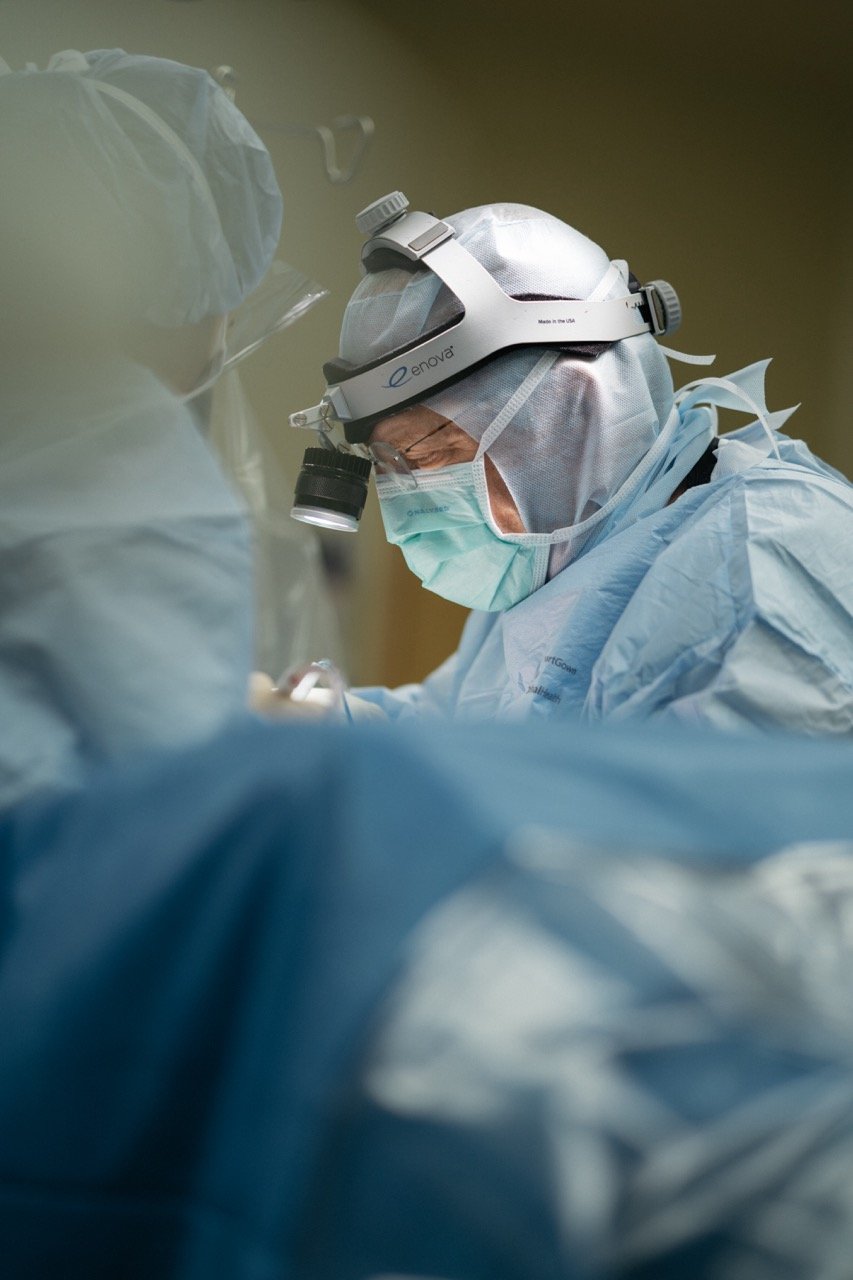Advanced Joint Replacement Techniques: Tissue-Sparing Surgery Explained
For many people struggling with chronic joint pain, joint replacement surgery offers a beacon of hope. However, traditional joint replacement procedures can involve extensive muscle detachment, leading to lengthy recovery times and significant post-operative pain.
At San Antonio Orthopaedic Specialists, we understand the importance of getting back to the activities you love as soon as possible. That's why we are proud to offer tissue-sparing joint replacement surgery, a revolutionary approach pioneered in San Antonio and South Texas by our very own, Dr. Adam Harris.
Optimize Joint Replacement Recovery: Benefits of Tissue-Sparing techniques
Pioneered in San Antonio by Dr. Harris, tissue-sparing joint replacement offers several key benefits for our patients:
Faster Recovery: By minimizing tissue disruption, you'll experience a quicker recovery and return to daily activities much sooner. This means less time spent recuperating and more time getting back to the things you enjoy.
Reduced Pain: Less tissue damage translates to significantly reduced post-operative pain. This allows you to focus on rehabilitation and experience a more comfortable recovery process.
Improved Long-Term Outcomes: Tissue-sparing techniques may lead to better joint function and potentially a longer lifespan for your implant. This translates to a more durable and functional joint replacement.
Smoother Transition to Physical Therapy: With less post-operative pain and quicker recovery, you'll be able to transition to physical therapy more efficiently. This ensures you maximize the benefits of your rehabilitation program and achieve optimal results.
Understanding Minimally Invasive vs. Tissue-Sparing Surgery
While both terms are often used interchangeably, there's a key distinction between minimally invasive surgery (MIS) and tissue-sparing surgery. Here's a breakdown to help you understand the difference:
Minimally Invasive Surgery (MIS):
Focus: Minimizes the size of incisions compared to traditional open surgery. Smaller incisions generally translate to less surgical trauma and potentially shorter recovery times.
Techniques: Utilizes various methods like laparoscopy, arthroscopy, or robotic surgery. These techniques involve specialized tools and visualization equipment to operate through smaller openings.
Tissue Disruption: Doesn't necessarily guarantee minimal disruption to muscles and soft tissues. While smaller incisions are used, some internal tissues might still be cut or manipulated to access the surgical site.
Tissue-Sparing Surgery:
Focus: Specifically minimizes disruption to muscles, tendons, and other soft tissues surrounding the surgical area. This approach prioritizes preserving the integrity of these tissues for faster healing and improved long-term outcomes.
Techniques: Employs specialized retractors that gently move tissues aside instead of cutting them. It might also utilize smaller implants or different surgical approaches that minimize muscle detachment.
Incision Size: Often utilizes smaller incisions, but incision size is not the main priority. The primary goal is to minimize overall tissue disruption, even if it requires slightly larger incisions compared to some minimally invasive techniques.
Who is a Candidate for Tissue-Sparing Joint Replacement?
The decision of whether tissue-sparing surgery is right for you will depend on several factors, including your age, overall health, and the severity of your joint damage. Our experienced surgeons at San Antonio Orthopaedic Specialists will perform a thorough evaluation to determine if you are a good candidate for this procedure. We are committed to providing exceptional patient care and developing personalized recovery plans to ensure the best possible outcomes for each patient.
If you're considering joint replacement surgery, schedule a consultation with San Antonio Orthopaedic Specialists today. We'll discuss your individual needs and determine if tissue-sparing surgery is the right option to help you achieve a faster recovery and return to the life you enjoy.
Partnering with South Texas Surgical and Spine Hospital for Exceptional Care
San Antonio Orthopaedic Specialists is proud to partner with South Texas Surgical and Spine Hospital (STSSH) to provide our patients with a seamless surgical experience. STSSH is a state-of-the-art facility specifically designed for orthopedic procedures, including joint replacements.
Key reasons why STSSH is the perfect environment for your tissue-sparing joint replacement surgery:
Advanced Certification: STSSH has obtained advanced certification for total knee and total hip replacement programs, demonstrating their commitment to exceeding national standards for quality and patient care.
Cutting-Edge Technology: STSSH boasts the latest advancements in surgical technology, ensuring your procedure is performed with the most advanced tools and equipment available.
Top-Ranked Facility: STSSH has consistently been named one of America's 100 Best Hospitals for Joint Replacement Award™ by Healthgrades (2022, 2023, 2024). This award acknowledges their expertise in delivering successful joint replacement surgeries with outstanding clinical outcomes.
Patient Testimonial: Sherrill's Experience with Tissue-Sparing Joint Replacement
Sherrill, a patient of Dr. Harris at San Antonio Orthopaedic Specialists, experienced the remarkable benefits of tissue-sparing joint replacement. After her surgery, she walked out of the hospital without the need for a walker or cane and quickly returned to an active lifestyle. With significantly reduced recovery time and minimal post-operative pain, Sherrill attributes her success to Dr. Harris’s expertise and compassionate care, describing him as an extraordinary surgeon who has transformed her quality of life.
At San Antonio Orthopaedic Specialists, we understand the challenges of joint pain and the limitations it can impose on your daily activities. Following joint replacement surgery, our team is dedicated to guiding you through a personalized recovery plan to help you regain mobility, strength, and return to the activities you enjoy.

